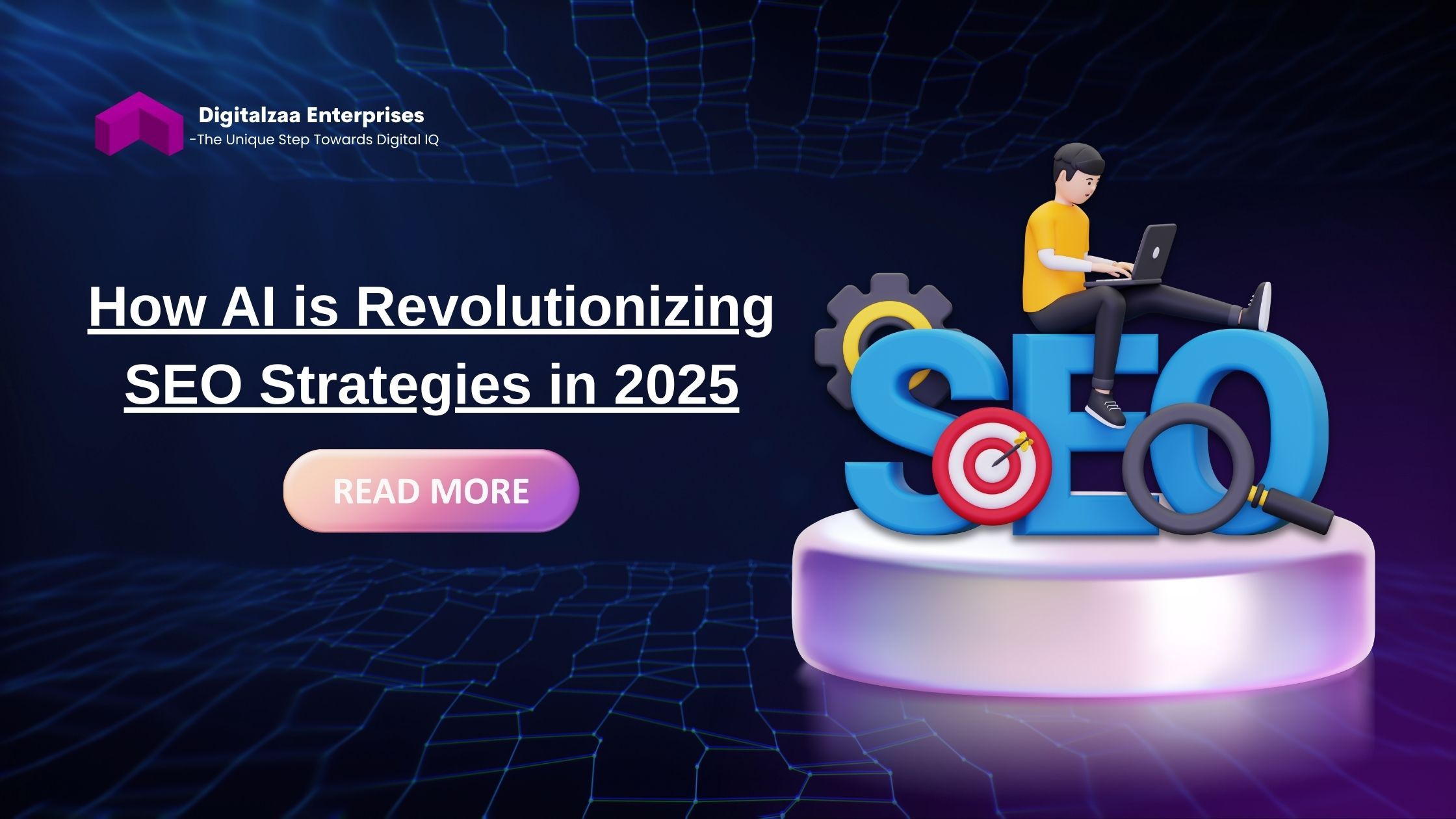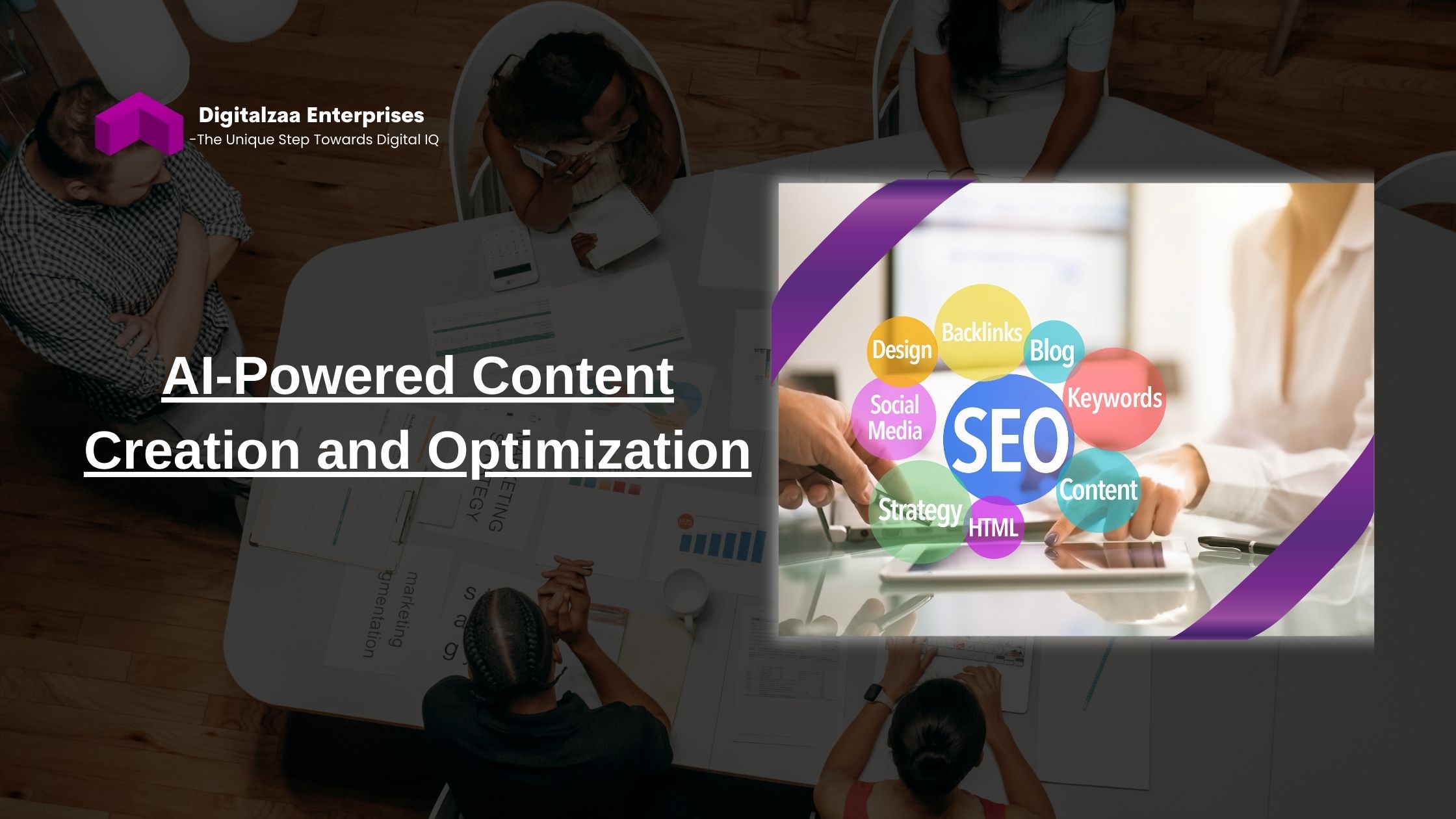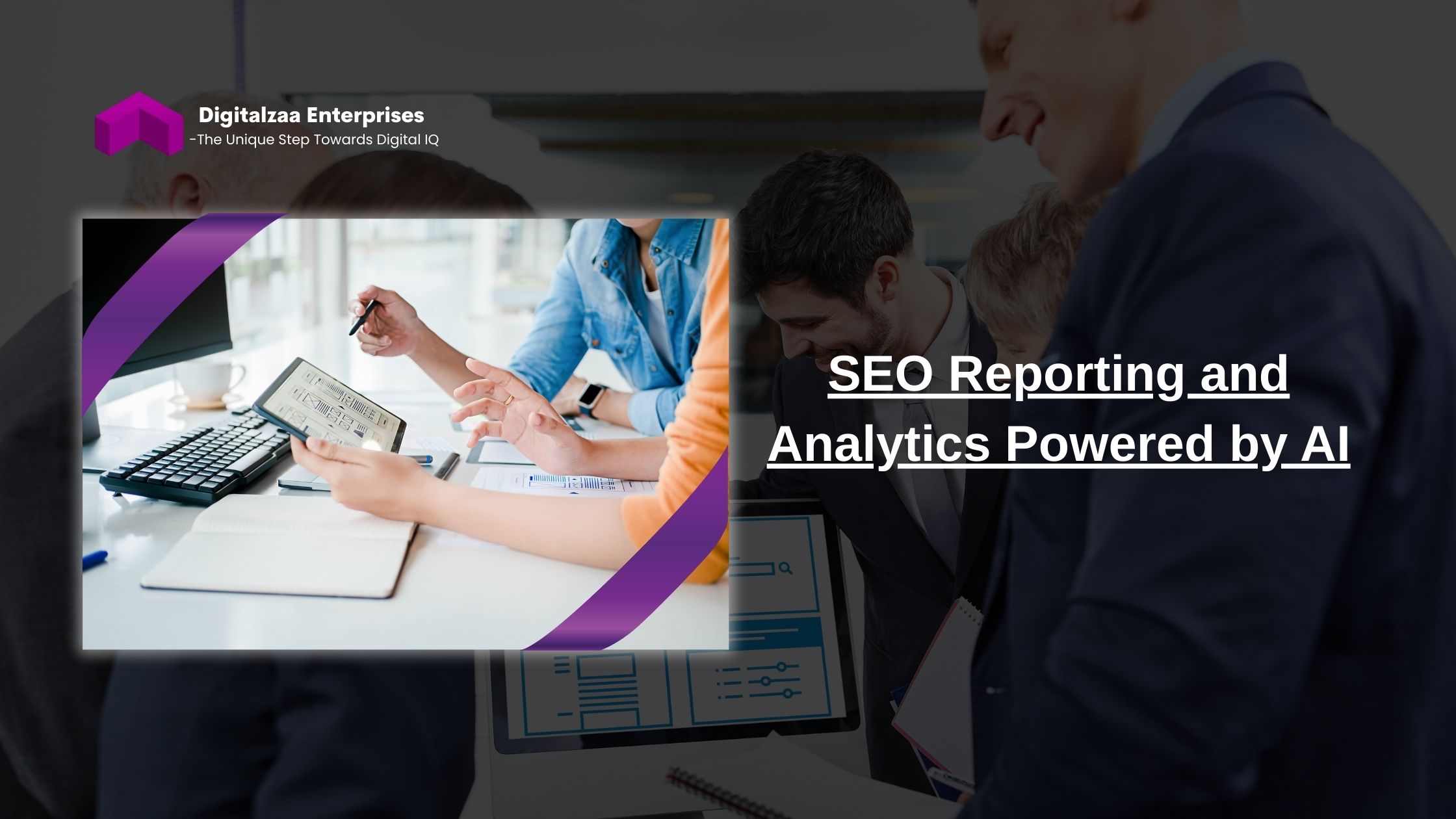How AI is Revolutionizing SEO Strategies in 2025.

In 2025, the landscape of search engine optimization (SEO) is undergoing a dramatic transformation, powered largely by advancements in artificial intelligence (AI). What was once a field dominated by keyword density and backlinks has evolved into a sophisticated ecosystem where understanding user intent, real-time content personalization, voice search optimization, and predictive analytics play a central role. AI isn't just a tool in the SEO toolbox anymore—it's the engine driving strategy, efficiency, and measurable results.
In this blog, we will explore the profound impact AI is having on SEO strategies in 2025, examine how businesses are adapting, and provide insights into tools, techniques, and trends that are shaping the future of search.
1. The Rise of Intelligent Search Engines
AI has fundamentally changed how search engines like Google, Bing, and others operate. In 2025, Google's RankBrain and BERT have evolved into even more powerful AI models that understand search queries in natural language with unmatched depth.
- From Keywords to Context: Gone are the days when stuffing exact-match keywords was enough to rank high. Today, AI interprets search queries based on user intent, context, and behavioral patterns. For instance, the phrase “best Italian restaurant near me open now” isn’t just parsed for keywords; search engines understand the user's location, past preferences, and even dining habits if permissions allow.
- Voice and Visual Search: Voice search, powered by AI assistants like Google Assistant, Alexa, and Siri, is now a mainstream part of SEO. Likewise, visual search through AI-driven platforms like Google Lens allows users to search using images instead of text. SEO strategies now must consider how content appears when spoken aloud or viewed through a camera lens.
2. AI-Powered Content Creation and Optimization

Content remains king, but in 2025, AI wears the crown too. AI-driven tools are creating high-quality, engaging, and SEO-friendly content at scale.
- Smarter Content Generation: Advanced language models can generate blog posts, product descriptions, FAQs, and social media posts with remarkable accuracy. Businesses now use AI to produce content tailored to different user personas and stages of the customer journey. For example, tools like Jasper, Copy.ai, and ChatGPT are integrated into content management systems to suggest article outlines, write headlines, or even generate full-length articles optimized for search engines.
- Dynamic Content Personalization: AI analyzes user behavior and tailors content in real-time. A returning visitor might see a different version of a webpage based on their prior interactions. This not only improves engagement but also reduces bounce rates, both critical SEO metrics.
3. Predictive SEO with Machine Learning
Predictive analytics, enabled by machine learning, has become a core part of SEO strategy in 2025.
- Forecasting Trends Before They Happen: AI analyzes vast datasets from social media, search engine trends, and consumer behavior to predict which keywords will gain popularity. SEO professionals can create and optimize content around these trends before they peak, giving brands a significant edge.
- Competitor Analysis in Real-Time: AI tools provide real-time insights into competitors’ SEO strategies, revealing what content is ranking, what backlinks they’re earning, and what technical adjustments they're making. Platforms like SEMrush, Ahrefs, and SurferSEO now come with AI-powered forecasting tools that suggest precise action plans based on competitive gaps.
4. Smarter Keyword Research and Clustering
Keyword research is no longer just about search volume and competition—it’s about understanding search intent. AI enables a more nuanced approach.
- Intent-Based Clustering: AI tools group keywords not just by semantic similarity but also by user intent, whether informational, transactional, or navigational. This helps in building content clusters that address all stages of the buyer journey, leading to better internal linking structures and improved site architecture.
- Real-Time Keyword Suggestions: AI-powered plugins and browser extensions provide dynamic keyword suggestions based on the latest search engine results. These suggestions are often more contextually relevant than traditional keyword tools.
5. AI and On-Page SEO Automation
AI is streamlining on-page SEO tasks that were once labor-intensive.
- Automated Meta Tags and Schema Markup: Tools now generate optimized meta titles, descriptions, and even structured data (schema markup) automatically. This ensures better CTRs and enhances the chance of getting rich snippets in search results.
- Image and Video SEO: AI tools can analyze images and videos for relevance, tag them appropriately, and optimize them for faster loading. This improves both user experience and search engine rankings, especially in Google Discover and visual search platforms.
6. Technical SEO Gets an AI Upgrade
Technical SEO, often considered the backbone of a website’s SEO health, is benefiting enormously from AI.
- AI Crawlers and Site Audits: Advanced AI bots crawl websites and generate comprehensive audits in minutes, highlighting broken links, duplicate content, indexation issues, and even user experience flaws. These audits are far more precise than older tools.
- Predictive Load Time Optimization: AI systems now monitor user behavior in real time to adjust website components dynamically. For example, AI can delay loading less important scripts on mobile devices to boost core web vitals.
7. Voice and Conversational SEO
With the proliferation of AI-driven virtual assistants, optimizing for voice search is no longer optional.
- Conversational Keyword Targeting: People speak differently than they type. AI tools now help SEO professionals identify and incorporate natural language queries into content. FAQ pages and how-to content are optimized to match conversational patterns.
- Featured Snippets and “Zero-Click” Results: AI helps structure content to appear in featured snippets, knowledge panels, and other zero-click search results. These positions are now prime real estate, especially for voice queries.
8. Enhanced User Experience (UX) Through AI
Google’s algorithm increasingly rewards websites that offer excellent UX. AI plays a key role here.
- Behavioral Analytics: AI tools track user scroll patterns, mouse movements, and engagement metrics to suggest UX improvements. Adjusting content placement, font size, or CTAs based on real-time user interaction enhances usability and boosts SEO.
- Personalized UX: AI personalizes the user journey across devices, languages, and even emotions (via sentiment analysis). A well-personalized experience leads to longer session durations, lower bounce rates, and higher conversions—all signals that positively influence SEO.
9. AI in Link Building and Outreach
Building high-quality backlinks remains critical, but AI is changing the game.
- Intelligent Prospecting: AI scrapes the web to identify authoritative sites, matches them with your niche, and even crafts personalized outreach emails. This speeds up the process and improves success rates.
- Quality Over Quantity: AI tools assess the potential impact of a backlink based on the referring domain’s trust score, traffic relevance, and historical link value, allowing SEO teams to focus on high-impact opportunities.
10. SEO Reporting and Analytics Powered by AI

Data visualization and performance tracking have seen significant improvements due to AI.
- Real-Time Dashboards: AI-integrated dashboards provide real-time SEO performance insights, tracking rankings, traffic sources, conversion rates, and content ROI. These dashboards can even send automated alerts when critical KPIs dip below target.
- Natural Language Summaries: Many reporting tools now use natural language processing to provide executive summaries of SEO reports. Instead of parsing through complex charts, marketers get clear, actionable insights in plain language.
Conclusion
AI is not the future of SEO—it’s the present. In 2025, businesses that embrace AI-driven SEO strategies are already witnessing enhanced visibility, better engagement, and stronger ROI. From content creation to UX optimization, from predictive analytics to automated reporting, AI is transforming every facet of SEO into a more efficient, intelligent, and scalable discipline.
However, while AI offers immense potential, it must be used thoughtfully. Overreliance on automation without human oversight can lead to robotic content, compliance issues, or misinterpretation of user needs. The most successful SEO strategies in 2025 strike a balance—leveraging the speed and precision of AI while retaining the creativity and empathy only humans can provide.
As we move further into this AI-driven era, one thing is clear: those who adapt will lead, and those who ignore these changes risk becoming invisible in the digital world.


